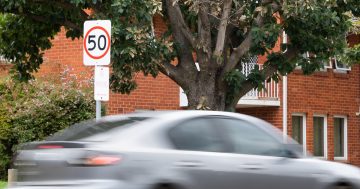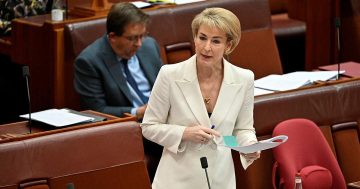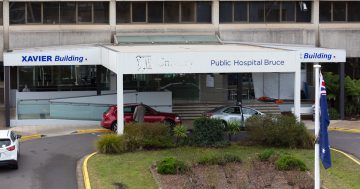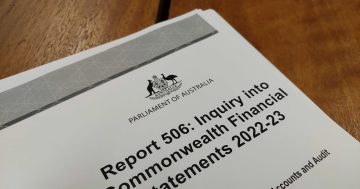
The bun fight between the Norfolk Island Legislative Assembly and the Commonwealth Government regarding governance of the island has been going on for decades.
The island has about 2000 permanent residents and they are Australian citizens. It has an interesting history dating back to 1856 when the bounty mutineers moved from Pitcairn Island to Norfolk Island. Most of the islanders can trace their heritage back to Fletcher Christian.
The island is governed under the provisions of the Commonwealth’s Norfolk Island Act (1979) which created the nine-member Legislative Assembly under the governance of an administrator.
The assembly has all the pomp and circumstance of the ACT’s Legislative Assembly, complete with a speaker. Compared to the ACT, which has one representative for every 13,000 voters, Norfolk Island’s assembly has one representative for every 222 residents.
The Norfolk Island Legislative Assembly’s speaker attends the Presiding Officers and Clerks Conference held annually around the Commonwealth. The Legislative Assembly also sends a delegation to the Commonwealth Parliamentary Associations Annual Conferences.
The island has ageing infrastructure, poor roads and crumbling public buildings. The residents rely on the Australian mainland for major health services and don’t (at this stage) pay income tax. In short, they get the best of both worlds in that they keep their island integrity with the major costs borne by the Commonwealth government.
The largest expenditure that I am aware of was the renovation to the Kingston Pier which is the islands entry port. However, visitors to the island are still offloaded from the cruise ships to a lighter boat which ferries them to the pier. The harbour desperately needs a deeper harbour to accommodate tourist cruise ships if that industry is to survive.
The debate at the moment is whether the Commonwealth should abolish the legislative assembly, assume responsibility for all but minor administrative matters and appoint a small group to administer the island’s affairs.
Islanders see this as an attack on their sovereignty and the Oz bureaucrats see this as financially responsible. Perhaps they are both right.
The essential question for me is whether a community of 2000 justifies a self-governing system. It is a question of whether it is appropriate for a community this size to have sovereignty similar to the states and territories on the mainland, but with significantly limited ability to be self-sustaining.
To put the size into perspective, in 2011 Tuggeranong had a population of 86,900, Kambah was 15,450 and Wanniassa, my suburb, had 7,786.
Tuggeranong is not a self-governing entity even though it is bigger than most towns and cities in NSW who have municipal councils with governance powers. One of the significant reasons for this is that Tuggeranong with no significant industry other than support services for the public sector is not self-sustaining.
Much has been said in opposition to the self-governance of the ACT but most people here accept that we need to govern ourselves, that we should not have taxation without representation. Opponents of self-government suggest that we could be part of NSW to allow taxation with representation. The idea is abhorrent to me but you would expect that.
Perhaps that is the answer for Norfolk Island. Instead of being an island territory administered by bureaucrats in Canberra, it should be absorbed into either Queensland or New South Wales and be given a municipal council like Palerang Council.
This would mean that the state level services, health, education, policing major roads and infrastructure would be provided from that state and included in the grants commission calculations. National issues, defence, citizenship, immigration, taxation, etc would not change, except for income taxation and duty free statuses. The municipal functions would be the responsibility of the new Council and the costs recovered from the residents on a use pays basis, supplemented by the parent state, as in the case with councils in New South Wales and Queensland.
The island has a small tourist industry, small scale agriculture, no manufacturing, a small scale service industry and a tiny population. If it is to be sustained, major political and governance reforms are necessary. To do nothing is not an option.
I have friends who are in the Legislative Assembly of Norfolk Island and I respect them immensely but I do worry they may be administering a dying community and I fear the worst.
It should not be difficult to talk to all of the residents and lay out the consequences of the status quo and the benefits of change. I wonder though, if this change is being imposed on the Islanders and the discussion has only been one way.





















